The Companies and Allied Matters Act (CAMA) 2020 significantly impacts the operations of churches and businesses in Nigeria. Under CAMA, churches, like other non-profit entities, can be registered as incorporated trustees under Part F of the Act. This registration grants them a separate legal personality, which means they can sue and be sued, own property, and enter into contracts in the entity’s name rather than in the names of each trustee. These legal provisions and judicial interpretations provide a robust framework for the operation of churches and businesses under CAMA 2020, ensuring that they contribute positively to societal goals while adhering to legal standards. The most recent amendment, the Companies and Allied Matters Act, 2020, was introduced to the National Assembly in December 2019, passed by the Senate on 10 March 2020 and by the House of Representatives on 5 March 2020, without public scrutiny. It received Presidential Assent on 7 August 2020, replacing the 1990 version of the Act. While the 2020 CAMA is praised for enhancing business operations, it also imposes stricter regulations on Incorporated Trustees, including includes Non-Governmental Organizations (NGOs) and faith-based organizations.
This amended Act introduces several reforms aimed at enhancing the ease of doing business. For instance, it allows for single-member/shareholder companies, introduces provisions for limited liability partnerships and limited partnerships, and simplifies the process of company registration. It also enhances minority shareholder protection and corporate governance by stipulating the disclosure of persons with significant control over companies. The Act also addresses the electronic filing of documents, electronic share transfers, and virtual meetings, making business operations more flexible and adapting to current technological advancements.
In the context of churches operating businesses, CAMA 2020 ensures that these entities are held to the same standards of corporate governance and accountability as commercial entities. This is crucial in ensuring that the businesses they engage in are not only legally compliant but also transparent and accountable to their members and the general public. The legal framework provided by CAMA 2020 for both churches and businesses underscores the government’s commitment to streamlining business practices and non-profit activities within a regulated environment that promotes transparency, accountability, and ease of operations.
Incorporated Trustees are Non-profit Organizations formed by a group of individuals, known as trustees, for charitable, religious, educational, and other similar purposes. Under the Companies and Allied Matters Act (CAMA) 2020, they are required to register with the Corporate Affairs Commission (CAC). The CAMA clearly stipulates that these organizations are not established for profit-making, and any income they generate must be solely applied to advancing their Specific objectives. As entities created for charitable purposes, Incorporated Trustees do not engage in business activities and are strictly prohibited from distributing income to their members as dividends. Instead, all revenue must be used to support their defined goals. Unlike a Limited by Guarantee (LTD/GTE) organization, Incorporated Trustees are not allowed to participate in business activities but can raise funds through grants, levies, donations, or other charitable means.
Incorporated Trustees operate under strict legal frameworks that govern how their income and property can be utilized. One crucial aspect of these regulations is the restriction on the distribution of profits, ensuring that all resources are dedicated to the organization’s core mission.
Section 838 of CAMA provides that:
- The income and property of a body or association whose trustees are incorporated under this Part of this Act shall be applied solely towards—
- The promotion of the objects of the body as set forth in its constitution; and
- No portion from it shall be paid or transferred directly or indirectly, by way of dividend, bonus, or otherwise by way of profit to any of the members of the association.
This provision aims to ensure that the primary focus of these organizations remains on their charitable, religious, or educational mandates rather than on profit-making ventures.
Furthermore, Section 832(2)(a) of CAMA provides that active members of the Managing Council or Governing Board of an Association registered as Incorporated Trustees are prohibited from holding any salaried positions or roles compensated by fees within the organization. However, these members are permitted to receive reimbursements for expenses incurred while performing their duties for the association, and they may also receive reasonable rental payments for properties they lease to the organization
CHURCHES AND BUSINESS VENTURES
Churches have long been recognized as places of worship and spiritual guidance. However, most people are unaware that some churches also engage in various business ventures to generate revenue. These for-profit arms of churches not only help sustain the religious institution but also contribute to the local community and support charitable causes.
Churches, as Incorporated Trustees, often engage in various activities beyond their primary religious objectives. Over the years, some churches have ventured into businesses such as real estate, publishing, transportation, and, notably, the establishment of educational institutions, including universities. The role of religious organizations, particularly churches, in the education sector has grown significantly over the years, with many establishing universities and other educational institutions. However, the involvement of churches in running universities has raised legal and ethical questions, particularly concerning whether such activities contravene laws that restrict Incorporated Trustees from engaging in business activities. Churches have historically also been involved in education, primarily as part of their mission to spread knowledge and moral values. However, when churches establish and operate universities, questions arise regarding the extent to which these institutions are run as commercial enterprises rather than purely charitable educational initiatives.
The key issue lies in the extent to which these church owned businesses or universities generate profit and how those profits are used. If the businesses or university’s revenues are reinvested solely in educational and charitable activities, they may be seen as consistent with the objectives of Incorporated Trustees. However, if the church operates the universities primarily for profit, this could be considered a breach of the laws that restrict Incorporated Trustees from engaging in business.
One way to ensure compliance to the provisions of CAMA as if it is not done correctly may jeopardize the church’s tax-exempt status is by the church creating or registering the businesses or Universities to carry out the taxable activities they undertake. The universities or other businesses of the church would be a separate legal entity from the church. The church would be issued shares in the new corporation, then receive dividends or other distributions from the subsidiary. This separation implies that the universities are not directly operated by the church but function independently, complying with regulatory requirements and educational mandates. The establishment and operation of universities by churches contribute significantly to education and community development. However, it is essential for these institutions to ensure their activities comply with the legal frameworks governing incorporated trustees to avoid violating the provisions of the Companies and Allied Matters Act (CAMA) 2020. Churches can establish businesses or universities under CAMA without contravening the Act, provided they adhere to the legal requirements for registration and operation. Compliance can be achieved by clearly distinguishing their charitable and business activities, ensuring that any income generated is used to further their mission without breaching legal restrictions. The company formed by the church would be separate from the church itself and could distribute profits, subject to standard corporate and tax laws.
In other words, for a church to establish a University, it must comply with the specific regulations and guidelines set by the National Universities Commission (NUC), which oversees university education in Nigeria. The NUC outlines requirements for the establishment, governance, and operation of universities, ensuring they meet educational standards and function within the legal framework.
In conclusion, as long as church-based universities adhere to NUC guidelines and maintain the required educational standards, their establishment under CAMA 2020 is legally permissible. This approach not only broadens the educational sector but also enhances its development by integrating diverse societal elements into education.
REFERENCES
placng.org/i/wp-content/uploads/2020/09/CAMA-Analysis.pdf published on September 2020 by Policy and Legal Advocacy Centre (PLAC).
Section 823 of CAMA 2020.
AN OVERVIEW OF BUSINESS AND NON-PROFIT ORGANIZATIONS IN NIGERIA – Legal Developments (legal500.com) published on August 2023 by Tope Adebayo LP.
CAC v. AYEDUN’ (2005) LPELR-5522(CA) and ‘REGISTERED TRUSTEES OF THE CHURCH OF THE LORD v. SHERIFF (2000) LPELR-6933(CA) Pp. 14-20, Paras. C-A; highlight the judiciary’s interpretation of CAMA in matters concerning the registration and management of company names and the jurisdiction of courts over the administrative affairs of incorporated trustees, respectively.
Exploring the Business Ventures of Churches: The Profitable Side – Smarter.com published by Staff Writer on May 2024.
Church Law Center When Churches Own a Business – Church Law Center Published on February 2020.
NKUME KATE KELECHI.





I’ve always thought of this. Now, I understand better